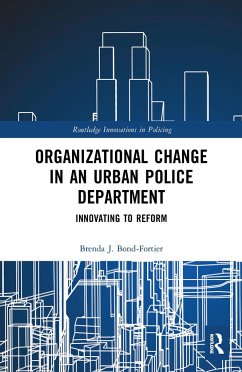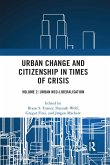This in-depth case study of a mid-sized police department captures the dynamics, struggles, and successes of police change, revealing the positive organizational and community outcomes that resulted from a persistent drive to reinvent public safety and community relationships. The police profession in the United States faces a legitimacy problem. It is critical that police are prepared to change constantly, be adaptive, and adopt openness to self-reflection and external comparison, moving beyond their comfort zone to overcome the inevitable cultural, structural, and political obstacles. Using previously unpublished longitudinal data examining a 25-year period, Bond-Fortier offers a rich account of the complexity of police management and change within one particular mid-sized city: Lowell, Massachusetts. The multidisciplinary lens applied provides crucial insights into how and why police organizations respond to a changing environment, set certain goals, and make decisions about how to achieve those goals. The book analyzes the community and organizational forces that stimulated change in the Lowell Police Department, describes the changes that enabled the department to achieve national model status, and builds a nexus between influencing forces, interdisciplinary theory, and the creation of an adaptive 21st-century police organization.¿ Organizational Change in an Urban Police Department: Innovating to Reform is essential reading for academics and students in criminal justice, criminology, organizational studies, public administration, sociology, political science, and public policy programs, as well as government executives, crime policy analysts, and public- and private-sector managers and leaders engaged in professional development and leadership courses.
Hinweis: Dieser Artikel kann nur an eine deutsche Lieferadresse ausgeliefert werden.
Hinweis: Dieser Artikel kann nur an eine deutsche Lieferadresse ausgeliefert werden.








